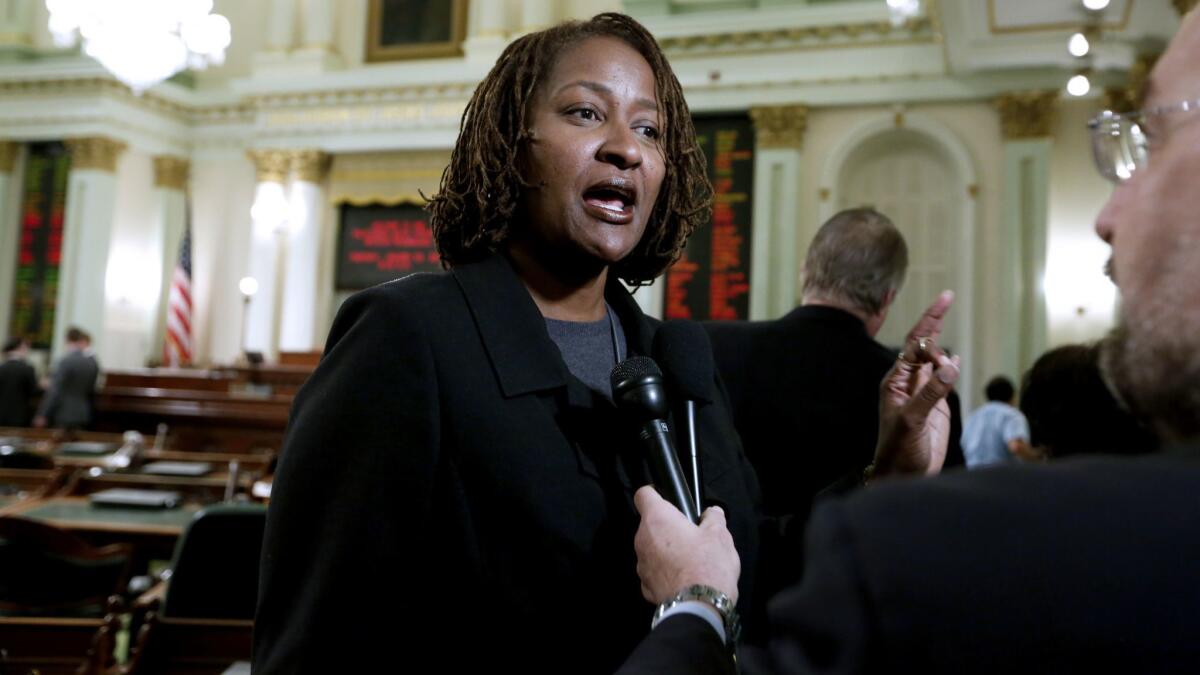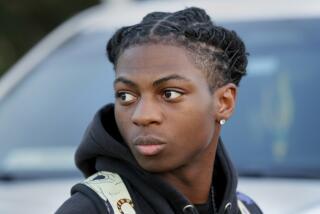Editorial: Employers have no business policing black people’s natural hairstyles

Black people have a fraught and painful history with hair. In particular, black women with textured, tightly curled or kinky hair have spent exorbitant amounts of time and money torturing it into straightness with chemicals and flat irons to fit a white standard of beauty that magazines have told them to aspire to and employers have told them to comply with. But when both black men and women have opted to wear cornrows, braids, and locks — styles that worked better with their hair’s texture — they have run into resistance from some employers, who have claimed the styles were inappropriate for work or violated grooming rules about “professional” looking hair.
Rarely did these workers take complaints all the way to a court or a civil rights commission. And even when they did, the person with the braids or cornrows usually lost. Employers have been free to impose ostensibly race-neutral grooming standards on employees. Only forbidding an Afro hairstyle has been found to be discriminatory.
For the most part, black employees who are challenged on the issue have simply shed their hairstyles and complied with grooming policies. As have students. Last year, a high school wrestler was forced by a referee to give up his dreadlocks or forfeit his game. The heart-wrenching scene of an official slicing off the athlete’s locks as the teenager stood there forlornly made national news. State Sen. Holly Mitchell (D-Los Angeles) remembers being shocked by that scene, but she’s heard numerous anecdotes from people who’d felt judged for having locks or braids or compelled to give up their own unstraightened hairstyles. Mitchell, who wears her hair in locks, says some people even suggested her hairstyle could hurt her chance of winning election.
Black people should not be forced to wear their hair in unnatural styles to meet an employer’s biased standard of beauty and grooming.
To address these issues, Mitchell has introduced a bill that would forbid employers from discriminating against employees who wear their hair in natural styles that are associated with being black. Senate Bill 188, the CROWN Act (yes, it’s a bit hokey: “Creating a Respectful and Open Workplace for Natural Hair”) would amend a state law that bars various forms of discrimination — the California Fair Employment and Housing Act — to extend its protections to traits historically associated with a person’s race, such as hair texture and “protective hairstyles.” It cites braids, locks and twists as specific examples.
Under this bill, employers could no longer use grooming policies to forbid black people from wearing cornrows, braids and other styles that work with the natural qualities of their hair. Beyond that, Mitchell hopes the bill will trigger an awareness of the implicit racism in assumptions that such styles are unprofessional and unruly, or even dirty.
Nothing in the bill would stop employers from requiring workers’ hair to be neat and clean. Nor would it bar employers from having rules about hair if safety or health reasons require them, such as in restaurant kitchens.
In the past, courts have found that because braids and locks were hairstyles that could be changed, they weren’t protected by existing anti-discrimination laws. An Afro, by contrast, was deemed to be an immutable quality of being a black person with that hair texture.
But critics have argued that braids and locks are hairstyles that more naturally accommodate kinky hair and, as such, should be considered as much a part of a person’s racial identity as an Afro. At the very least, it seems ludicrous for an employer to force a black person whose hair is more easily braided or put in locks to use damaging chemicals and flat irons to achieve a hairstyle that matches the employer’s vision of what constitutes professionalism.
Enter the Fray: First takes on the news of the minute »
Mitchell’s bill could use some tuning, however, to avoid unintended consequences. It doesn’t specify what could be considered “traits historically associated with race” — a phrase that is too broad and needs to be better defined.
Nevertheless, the intent behind this bill is sound: Black people should not be forced to wear their hair in unnatural styles to meet an employer’s biased standard of beauty and grooming.
“It’s 2019,” Mitchell said last week in testimony to the State Senate Judiciary Committee, which approved the bill. “Any law that sanctions a job description that immediately excludes me … from a position, not because of my capacity to do the job but because of how I choose to wear my hair, is long overdue for reform.”
What she said.
Follow the Opinion section on Twitter @latimesopinion or Facebook
More to Read
A cure for the common opinion
Get thought-provoking perspectives with our weekly newsletter.
You may occasionally receive promotional content from the Los Angeles Times.






